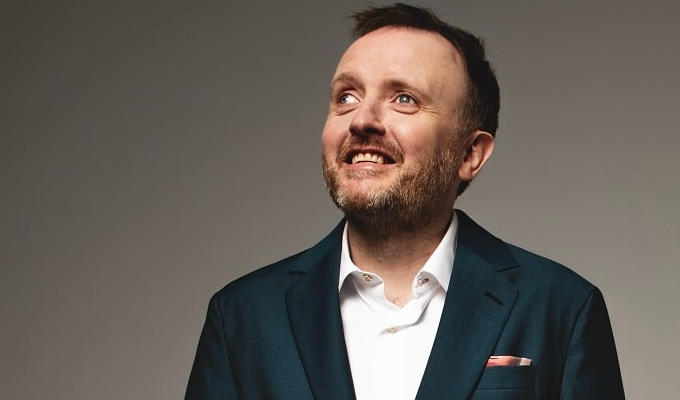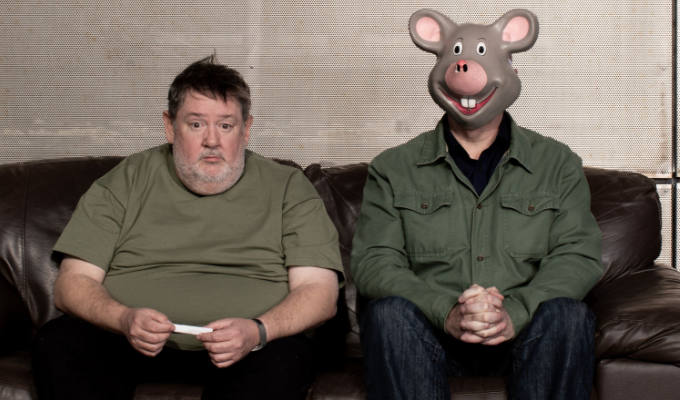
Our guide to Black Mirror series 3
Charlie Brooker's new Netflix episodes
There can be only one candidate for our 'on demand' pick this week, as Black Mirror is back, and this time on Netflix. The new series of six episodes has spread its scope from the darkly humorous satires from which it started, encompassing all manner of genres. But Charlie Brooker's mordant wit is normally somewhere to be found amid the heart-stopping action or intriguing scenarios. Here is our guide to the new episodes.
Nosedive
In this near-future drama, Charlie Brooker and his co-writers Rashida Jones and Michael Schu , have extrapolated the rating system of services such as Uber and Airbnb to its logical conclusion.
Here your every interaction results in an upvote, or a crushing downward one: whether buying a coffee to accidentally spilling it on someone. Your entire worth is reduced to a score out of five, determined by the rest of society.
The result is a sanitised, pastel world – beautifully and almost hauntingly captured by Atonement director Joe Wright – full of smiling, subservient Stepford Wives and Husbands, all driven by caution not to say or do anything that might mean the slightest ding in your rating. Interestingly, this Uber-style system is the opposite of social media, where extreme reactions get you attention and followers.
It's also a great dramatic driver, with genuine instant jeopardy, since your social ranking determines absolutely everything, fro the home you can get to the car you can drive.
As office worker Lacie, Bryce Dallas Howard perfectly captures the insecurity of this life, and she frets about every encounter, and tries to cosy up to old school friend Naomi (Alice Eve), bidding to ride on the coat-tails of her prestigious score.
There's an easy parallel with TV ratings here, people deciding their action based on what will 'play well', tending towards blandness rather that showing a real personality people might hate as equally as they love. So perhaps it's no surprise to see what a distinctive, quirky show such as Black Mirror makes of this version of society.
Nosedive depicts a worrying but compelling world, with a story that mixes farce, wry humour and tension into its gripping story, and instantly ranks among one of the best Black Mirrors there have ever been. I'd give it five stars… but in the context of that would seem crass.
Playlist

Brooker started his career as a video games journalist, and this episode is a nighmarish vision of how immersive virtual reality technology might work out.
Cooper – played by Wyatt Russell, son of Kurt Russell and Goldie Hawn – is an American who winds up in London at the end of his global travels. Needing to find the money to get back to the States, he agrees to beta-test the cutting edge of games, heading to the lavish headquarters of a cutting-edge gaming genius.
Downton Abbey on the outside, minimalist sci-fi clinical within, this mystical place is like Willy Wonka's Chocolate Factory for a millennials… and we all know what happened to most the children who visited that apparent paradise, and why.
The game – and it takes a while to get there – aims to give its players the adrenaline surge of confronting their fears. It's essentially a haunted house story – ideal for Halloween week – but ramped up to 11, since it is Black Mirror after all. It's a tense and gripping ride, although misses some opportunities to fully explore the ambiguities between reality and fiction.
San Junipero

It's 1987: The Lost Boys is on at the cinema and Max Headroom is on the (cathode-ray) TV. San Junipero is a party town, but shy Yorkie (Mackenzie Davis) is a reluctant participant, nervously venturing into the nightclub filled with gaudy pink and blue neon.
Yet this shy wallflower is soon hit upon by the 'bodacious' Kelly (Gugu Mbatha-Raw) who tries to bring her out of her shell, and a tentative flirtation begins.
The tone here is more like a traditional coming-of-age romance; though being Black Mirror things aren't quite what they seem. It's clear there are some odd things happening here. Midnight looms as a big deadline, and when Yorkie returns a week later, the town isn't quite how it was before.
Events play out at a slower pace than usual, and it takes a while for the big reveal to come, likely to elicit a satisfying 'aah!' as the penny drops. But, unusually for this series, the twist is not the crux of the story. It's definitely more about human emotions and interactions, more important than any technological innovation.
So a departure for the Black Mirror franchise, but a warm and endearing one.
Shut Up And Dance

It's a bit like the Saw franchise, but played as a heart-thumping thriller rather than a horror as an unseen tormentor forces the ordinary protagonists to do things they never normally would.
In this case it's awkward 19-year-old misfit Kenny (Alex Lawther),who is blackmailed after falling into an online trap, forced into doing the increasingly extreme bidding of the mysterious puppet-masters. Also in the same predicament is Hector – a compellingly uncomfortable turn from Jerome Flynn – as they are pushed into increasingly extreme situations.
Events take place at a breakneck speed to keep you gripped, with sucker punches to knock the wind out of you just when you think you know where the action is heading. The concept and technology here is relatively low compared to the rest of the franchise, but the thrills are probably higher.
Men Against Fire
fire.jpg)
Another use of virtual reality in this episode, in which soldiers have an implant which makes them see their enemies as zombie-like 'roaches, they can kill without guilt. But the Stripe (Malachi Kirby, from the Root remake) starts suffering from what seem like PTSD-type symptoms after one of these monsters shines a strange light in his eye.
There is definitely an analogy about 'seeing the light' here as the soldier starts realising what is going on. Issues of treating people as 'other' are raised, which seems so very relevant as Brexit and refugees dominate the news, underlining the tribal message that politicians and the media like to instil in a population who like the simplicity of that explanation.
This is what Black Mirror does best: using technological possibilities to raise its ethical issues, via a compelling storyline and an ambiguous morality.
Hated in the Nation

Free from the time constraints of TV scheduling, this feature length episode is wide in scope, combining the bee shortage, drone technology, big data and social media mob rule into one terrifying version of the future.
Brooker has described this police procedural as his take on the scandi-Noir detective thriller, also inspired by his own run-ins with online trolls, but you can probably throw in a flick of the X-Files, too.
Kelly MacDonald plays no-nonsense investigator Karin Parke, sharp witted and sharp tongued, who with her colleague Blue (Faye Marsay) is looking into the suspicious deaths of controversial figures just after they become internet hate figures for making awful comments. It's the flip side of the social media rating system shown in Nosedive.
And as the complex plot unravels the possible implications of inventions we are only just beginning to come to terms with are laid bare – needless to say it's not a comforting prospect.
Hated In The Nation is widely hailed as the masterpiece of these six episodes (with six more to come to Netflix at some future point) – plaudits well-deserved for its taut plotting, bold vision and pithy dialogue.
- by Steve Bennett
• Charlie Brooker on the new series of Black Mirror.
Published: 22 Oct 2016






